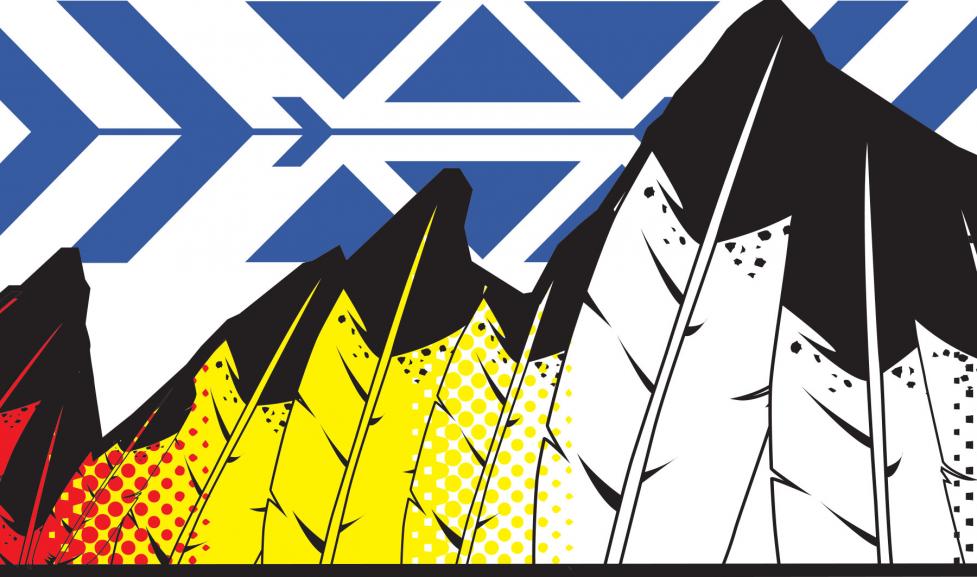Overview
The City of Boulder acknowledges the city is on the ancestral homelands and unceded territory of Indigenous Peoples who have traversed, lived in and stewarded lands in the Boulder Valley since time immemorial. Those Indigenous Nations include the: Di De’i (Apache), Hinono’eiteen (Arapaho), Tsétsėhéstȧhese (Cheyenne), Nʉmʉnʉʉ (Comanche), Caiugu (Kiowa), Čariks i Čariks (Pawnee), Sosonih (Shoshone), Oc'eti S'akowin (Sioux) and Núuchiu (Ute).
The City of Boulder recognizes that those now living and working on these ancestral lands have a responsibility to acknowledge and address the past and initiate community-wide work to help support Indigenous Nations and Indigenous communities and organizations in Boulder.
City-Tribal Collaboration
City staff appreciate the opportunity to listen and learn from Tribal Representatives from American Indian Tribal Nations and are working on several consultation and engagement projects with Tribal Representatives from American Indian Tribal Nation, including:
- Ongoing Tribal Consultations: City staff recognize the importance of respecting and honoring Tribal sovereignty and self-determination and conduct ongoing government-to-government consultations with Tribal Representatives appointed by federally recognized Tribal Nations that have consulted with the city since the late 1990s, share Memorandums of Understanding with the city and have historic connections to the Boulder Valley. Learn more about ongoing city work with Tribal Nations.
- Fort Chambers / Poor Farm Management Plan: Open Space and Mountain Parks staff extend their gratitude to the Cheyenne and Arapaho Tribes, the Northern Arapaho Tribe and the Northern Cheyenne Tribe for providing guidance on a planned site management plan for the Fort Chambers / Poor Farm property, which has a direct, local connection to the Sand Creek Massacre.
- Tribal Nation Ethnographic-Education Report. City of Boulder staff recognizes the interpretation and educational information describing its history is dominated by American-European perspectives and fails to adequately include Indigenous perspectives. The report will be informed by in-person interviews with Tribal Representatives and is intended to help our community learn about the enduring cultural, spiritual and historical connections Tribal Nations have with the Boulder Valley. The report will help the city and Tribal Nations develop education and interpretation materials that provide accurate, truthful Indigenous Peoples’ stories – both past and present. The report is also intended to help city staff learn more about special areas or types of places of importance to Tribal Nations and help guide future conversations with Tribal Nations. City staff have received permission from Tribal Representatives to release a final report, after approval by Tribal Representatives, in early 2026.
- Indigenous Peoples Day Celebrations: The City of Boulder’s Human Relations Commission and Office of Arts and Culture also support community programs and events as part of Indigenous Peoples Day celebrations. In 2016, the Human Relations Commission and community members drafted the Indigenous Peoples Day Resolution (Resolution No. 1190), which was presented at the Aug. 2, 2016, Boulder City Council meeting and adopted by the City of Boulder.” It declared the second Monday of October of each year to be Indigenous Peoples Day. It also directed staff to receive guidance from Tribal Nations to rename Settler’s Park and begin long-term work to recognize and celebrate Indigenous Peoples in public places and programming.
The City of Boulder’s Human Relations Commission and Office of Arts and Culture also support community programs and events as part of Indigenous Peoples Day celebrations. In 2016, the Human Relations Commission and community members drafted the Indigenous Peoples Day Resolution (Resolution No. 1190), which was presented at the Aug. 2, 2016, Boulder City Council meeting and adopted by the City of Boulder.” It declared the second Monday of October of each year to be Indigenous Peoples Day. It also directed staff to receive guidance from Tribal Nations to rename Settler’s Park and begin long-term work to recognize and celebrate Indigenous Peoples in public places and programming.
Learn more about the city's ongoing consultation and collaboration work with Tribal Nations through:
Guiding Resolutions, Plans and Policies
City of Boulder efforts to collaborate with and support Indigenous Nations and Indigenous communities and organizations are guided by the plans, policies and documents:
